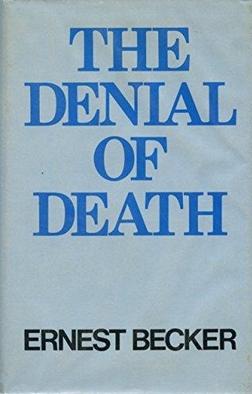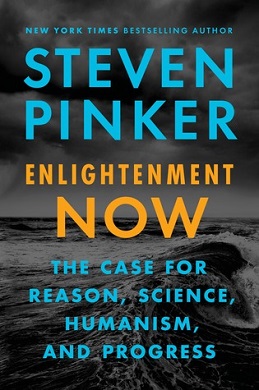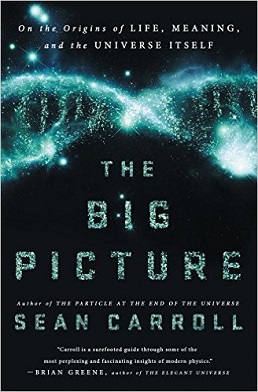
An Enquiry Concerning Human Understanding is a book by the Scottish empiricist philosopher David Hume, published in English in 1748 under the title Philosophical Essays Concerning Human Understanding until a 1757 edition came up with the now-familiar name. It was a revision of an earlier effort, Hume's A Treatise of Human Nature, published anonymously in London in 1739–40. Hume was disappointed with the reception of the Treatise, which "fell dead-born from the press," as he put it, and so tried again to disseminate his more developed ideas to the public by writing a shorter and more polemical work.
The meaning of life pertains to the inherent significance or philosophical meaning of living. There is no consensus on a definitive answer, and thinking or discourse on the topic is sought in the English language through the question, "What is the meaning of life?". There have been many proposed answers to these questions from many different cultural and ideological backgrounds. The search for life's meaning has produced much philosophical, scientific, theological, and metaphysical speculation throughout history. Different people and cultures believe different things for the answer to this question. Opinions vary on the usefulness of using time and resources in the pursuit of an answer. Excessive pondering can be indicative of, or lead to, an existential crisis.

Robert Nozick was an American philosopher. He held the Joseph Pellegrino University Professorship at Harvard University, and was president of the American Philosophical Association. He is best known for his book Anarchy, State, and Utopia (1974), a libertarian answer to John Rawls' A Theory of Justice (1971), in which Nozick proposes his minimal state as the only justifiable form of government. His later work Philosophical Explanations (1981) advanced notable epistemological claims, namely his counterfactual theory of knowledge. It won the Phi Beta Kappa Society's Ralph Waldo Emerson Award the following year.

Misanthropy is the general hatred, dislike, or distrust of the human species, human behavior, or human nature. A misanthrope or misanthropist is someone who holds such views or feelings. Misanthropy involves a negative evaluative attitude toward humanity that is based on humankind's flaws. Misanthropes hold that these flaws characterize all or at least the greater majority of human beings. They claim that there is no easy way to rectify them short of a complete transformation of the dominant way of life. Various types of misanthropy are distinguished in the academic literature based on what attitude is involved, at whom it is directed, and how it is expressed. Either emotions or theoretical judgments can serve as the foundation of the attitude. It can be directed toward all humans without exception or exclude a few idealized people. In this regard, some misanthropes condemn themselves while others consider themselves superior to everyone else. Misanthropy is sometimes associated with a destructive outlook aiming to hurt other people or an attempt to flee society. Other types of misanthropic stances include activism by trying to improve humanity, quietism in the form of resignation, and humor mocking the absurdity of the human condition.

David Pearce is a British transhumanist philosopher. He is the co-founder of the World Transhumanist Association, currently rebranded and incorporated as Humanity+. Pearce approaches ethical issues from a lexical negative utilitarian perspective.

Martha Nussbaum is an American philosopher and the current Ernst Freund Distinguished Service Professor of Law and Ethics at the University of Chicago, where she is jointly appointed in the law school and the philosophy department.

Mary Beatrice Midgley was a British philosopher. A senior lecturer in philosophy at Newcastle University, she was known for her work on science, ethics and animal rights. She wrote her first book, Beast and Man (1978), when she was in her late fifties, and went on to write over 15 more, including Animals and Why They Matter (1983), Wickedness (1984), The Ethical Primate (1994), Evolution as a Religion (1985), and Science as Salvation (1992). She was awarded honorary doctorates by Durham and Newcastle universities. Her autobiography, The Owl of Minerva, was published in 2005.

John Nicholas Gray is an English political philosopher and author with interests in analytic philosophy, the history of ideas, and philosophical pessimism. He retired in 2008 as School Professor of European Thought at the London School of Economics and Political Science. Gray contributes regularly to The Guardian, The Times Literary Supplement and the New Statesman, where he is the lead book reviewer. He is an atheist.

Loren Eiseley was an American anthropologist, educator, philosopher, and natural science writer, who taught and published books from the 1950s through the 1970s. He received many honorary degrees and was a fellow of multiple professional societies. At his death, he was Benjamin Franklin Professor of Anthropology and History of Science at the University of Pennsylvania.

The Denial of Death is a 1973 book by American cultural anthropologist Ernest Becker which discusses the psychological and philosophical implications of how people and cultures have reacted to the concept of death. The author argues most human action is taken to ignore or avoid the inevitability of death.
Human nature comprises the fundamental dispositions and characteristics—including ways of thinking, feeling, and acting—that humans are said to have naturally. The term is often used to denote the essence of humankind, or what it 'means' to be human. This usage has proven to be controversial in that there is dispute as to whether or not such an essence actually exists.

Humanism is a philosophical stance that emphasizes the individual and social potential, and agency of human beings, whom it considers the starting point for serious moral and philosophical inquiry.
Albert Borgmann was a German-born American philosopher, specializing in the philosophy of technology.

Etty Hillesum and the Flow of Presence: A Voegelinian Analysis is a 2008 book by Dutch philosopher Meins G. S. Coetsier, According to WorldCat, the book is held in 781 libraries.
David Edward Cooper is a British philosopher and writer. He is Emeritus Professor of Philosophy at Durham University.
Michael Allen Fox is an American/Canadian/Australian philosopher who was based at Queen's University in Kingston, Ontario from 1966 until his retirement in 2005. He is the author of a number of books, including The Case for Animal Experimentation: An Evolutionary and Ethical Perspective —the arguments and conclusion of which he later rejected—Deep Vegetarianism, The Accessible Hegel, The Remarkable Existentialists, Understanding Peace and Home: A Very Short Introduction.

Enlightenment Now: The Case for Reason, Science, Humanism, and Progress is a 2018 book written by Canadian-American cognitive scientist Steven Pinker. It argues that the Enlightenment values of reason, science, and humanism have brought progress, and that health, prosperity, safety, peace, and happiness have tended to rise worldwide. It is a follow-up to Pinker's 2011 book, The Better Angels of Our Nature.

The Big Picture: On the Origins of Life, Meaning, and the Universe Itself is a non-fiction book by American theoretical physicist Sean M. Carroll. The book was published on May 10, 2016, by Dutton. In his fourth book, Carroll defends the argument that the universe can be completely interpreted by science, introducing "poetic naturalism" as a philosophy that explains the world.

The predation problem or predation argument refers to the consideration of the harms experienced by animals due to predation as a moral problem, that humans may or may not have an obligation to work towards preventing. Discourse on this topic has, by and large, been held within the disciplines of animal and environmental ethics. The issue has particularly been discussed in relation to animal rights and wild animal suffering. Some critics have considered an obligation to prevent predation as untenable or absurd and have used the position as a reductio ad absurdum to reject the concept of animal rights altogether. Others have criticized any obligation implied by the animal rights position as environmentally harmful.

Straw Dogs: Thoughts on Humans and Other Animals is a 2002 book by the philosopher John Gray. In the book, Gray attacks humanism and traces its origins back to Christianity. The book is divided into six chapters, which in turn are subdivided into short essays on different topics.















